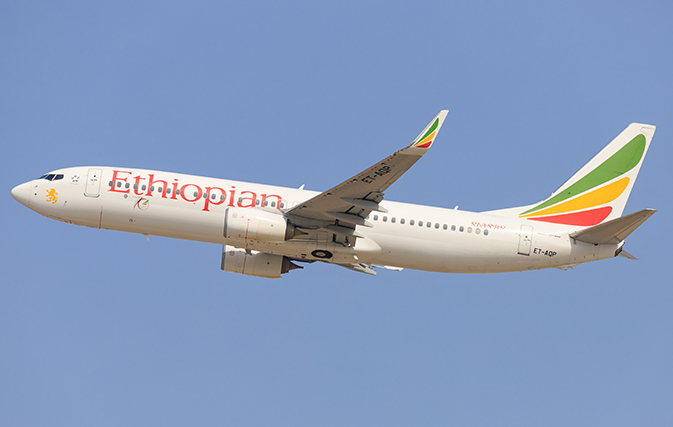TORONTO — Canadian Transport Minister Marc Garneau says Canada has no plans to ground the country’s fleet of Boeing 737 Max 8 aircraft, despite the decision of Britain, Germany, France and others to do so.
Britain, Germany, France and Ireland have joined a rapidly growing number of countries grounding or closing airspace to the new Boeing 737 Max 8 aircraft involved in the Ethiopian Airlines disaster as a global team of investigators began looking for parallels with a similar crash just five months ago.
Pressure grew on the U.S. to take action over the Boeing 737 Max 8 as Asian, Middle Eastern and then European nations and carriers gave in to concerns.
Oman, Norwegian Air Shuttle and South Korean airline Eastar Jet were among the latest to halt use of the Boeing model.
Turkish Airlines has also said it is grounding all Boeing 737 Max aircraft in its fleet until further notice.
Malaysia, Australia and Singapore suspended all flights into or out of their countries.
The U.S.-based Boeing says it has no reason to pull the aircraft from the skies. It does not intend to issue new recommendations about the aircraft to customers. Its technical team joined American, Israeli, United Arab Emirates, Kenyan and other aviation experts in the investigation led by Ethiopian authorities.
If investigators find a common cause for the Lion Air and Ethiopian Airlines tragedies stemming from the 737 Max 8 design it could prompt airlines and travellers to shun the jet, however experts say they are wary of linking the two crashes until more evidence is available.
Boeing has more than 5,000 orders for the various Max versions, and they make up the largest share of the company’s backlog of nearly 5,900 planes.
Airlines have been inundated with calls from travellers as more than a dozen nations have grounded Boeing 737 Max 8 planes or ordered other precautions, says Jakarta-based aviation expert Gerry Soejatman.
Soejatman likened the reaction to a “mass hysteria” that he said stems partly from Boeing Co.’s handling of the Lion Air crash.
“I’m really struggling to comprehend it,” he said. “The public needs more, they need more reassurance.”
After the Indonesian crash, Boeing issued a bulletin to operators of the Max 8 about possible problems with its automated anti-stall system. But it appeared routine and referred flight crews to existing guidelines.
That was followed by an emergency airworthiness directive from the U.S. Federal Aviation Administration that directed airlines to make specific changes to flight manual procedures.
“The one thing we know for sure that both crashes involved the Boeing 737 Max 8 planes,” said Choi Yong-jun, an aviation professor at South Korea’s Kyungwoon University and a former air force pilot.
“So the only possible reaction is to conduct close safety inspections on the planes that are still in use.”
That both the Lion Air and Ethiopian Airlines planes crashed just minutes after takeoff has generated speculation the Ethiopian Airlines jet had the same problem as the Lion Air jet.
But witness reports of smoke pouring out of the Ethiopian Airlines jet before it crashed suggest the cause could be different, said Geoffrey Thomas, an Australian aviation expert and editor-in-chief at Airlineratings.com.
“That would mean it had nothing in common with the Lion Air crash,” he said. “What caused the smoke is hard to say. Small bomb, engine fire? Too early to tell.”
Yesterday Garneau said he would board a Boeing 737 Max 8 aircraft “without hesitation”, stressing his confidence in the new plane.
Amid questions on continued Max 8 flights in Canada, Garneau warned against jumping to conclusions about the cause of the crash.
Air Canada has operated Boeing 737 Max 8 aircraft since 2017. “These aircraft have performed excellently from a safety, reliability and customer satisfaction perspective,” said spokeswoman Isabelle Arthur. “We continue to monitor the situation, and based on current information and recommendations by government safety regulators, including Transport Canada, and the manufacturer, we continue to operate our normal B737 schedule.”
WestJet Airlines Ltd. said Monday that it is not grounding any of the 13 Max 8s in its fleet of 121 Boeing 737s.
It was not clear immediately what the growing wave of groundings and air space restrictions would mean for Air Canada and WestJet, both of which have service to Europe.
Garneau says his department is working with the American Federal Aviation Authority to determine if action is required. Boeing said late Monday the FAA has told the U.S.-based aircraft manufacturer it must install safety-related software updates to the 737 Max 8s.
With files from The Canadian Press
